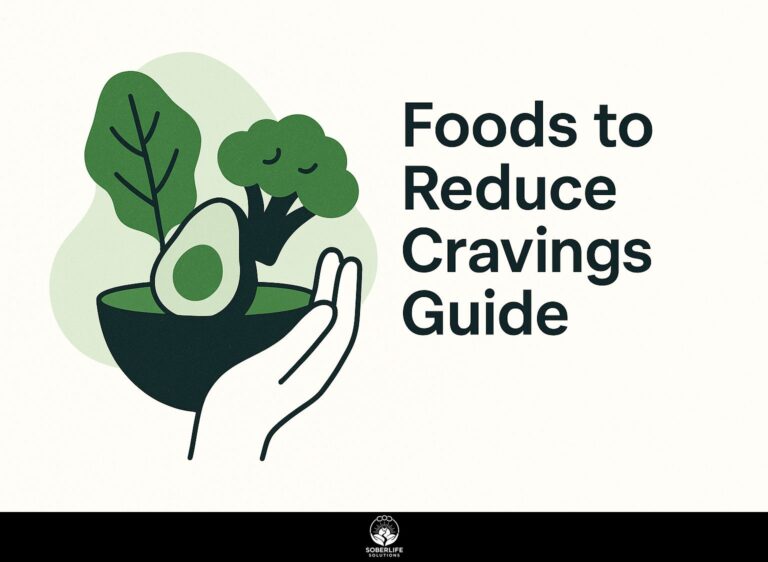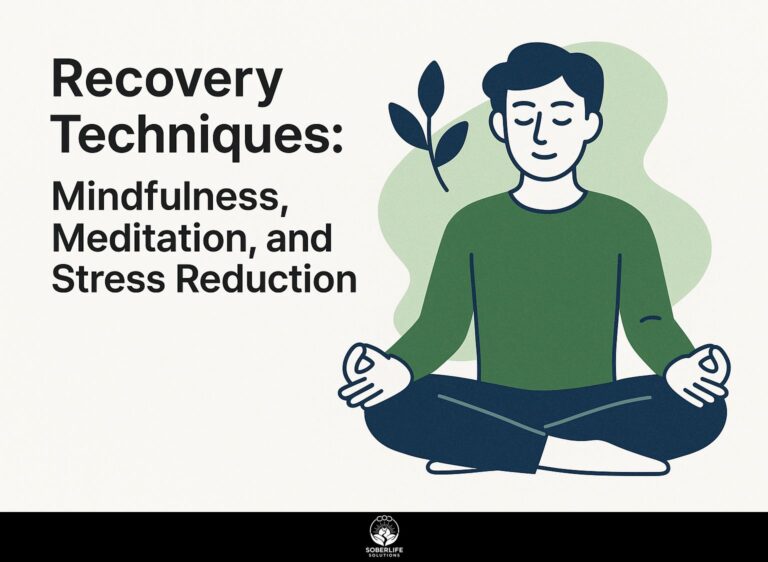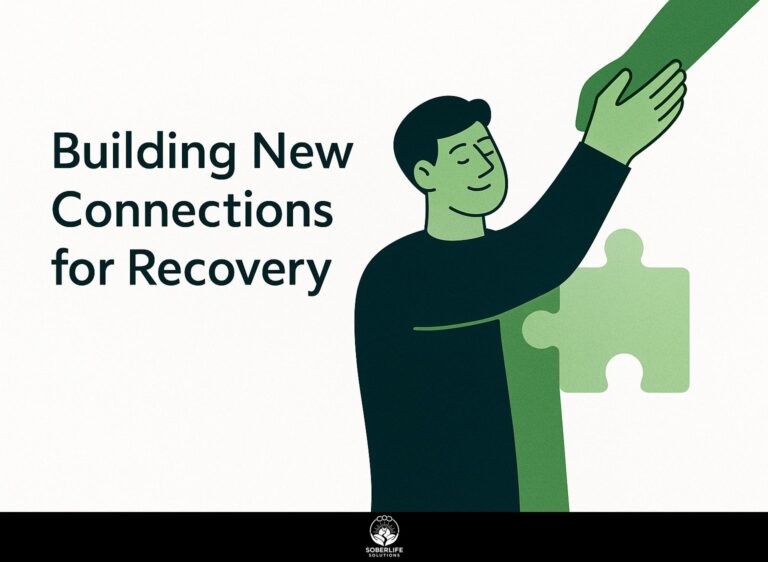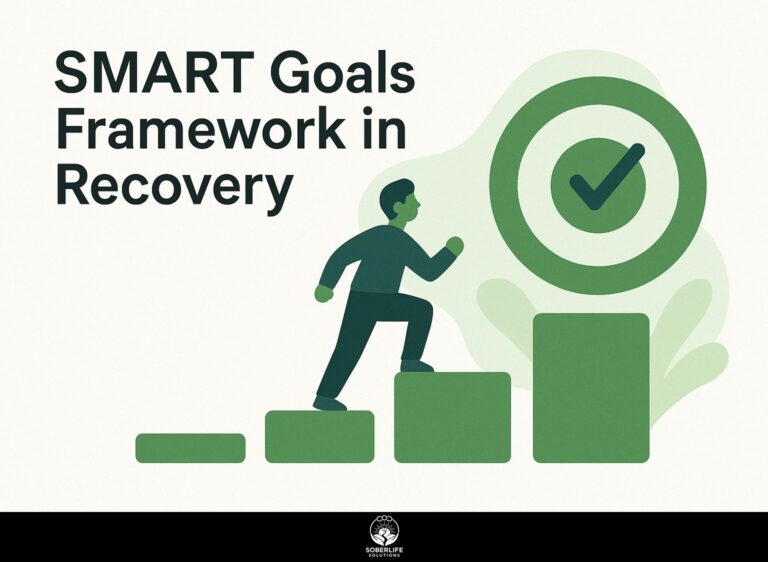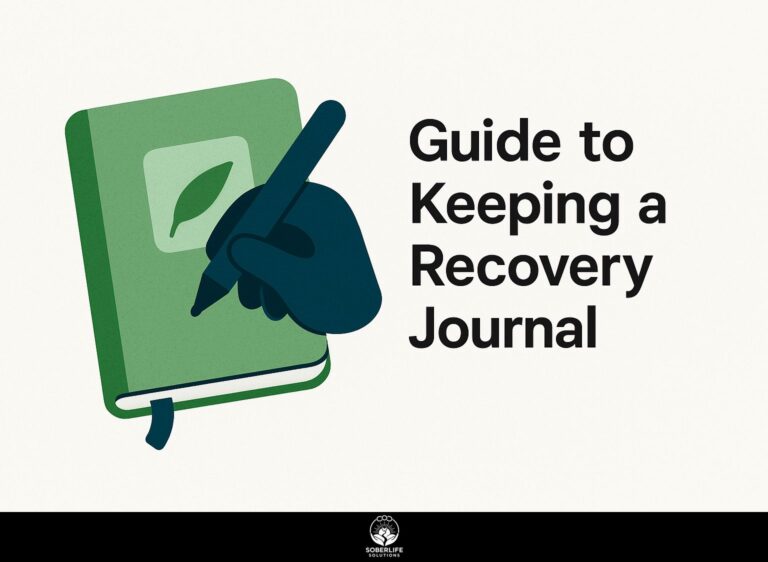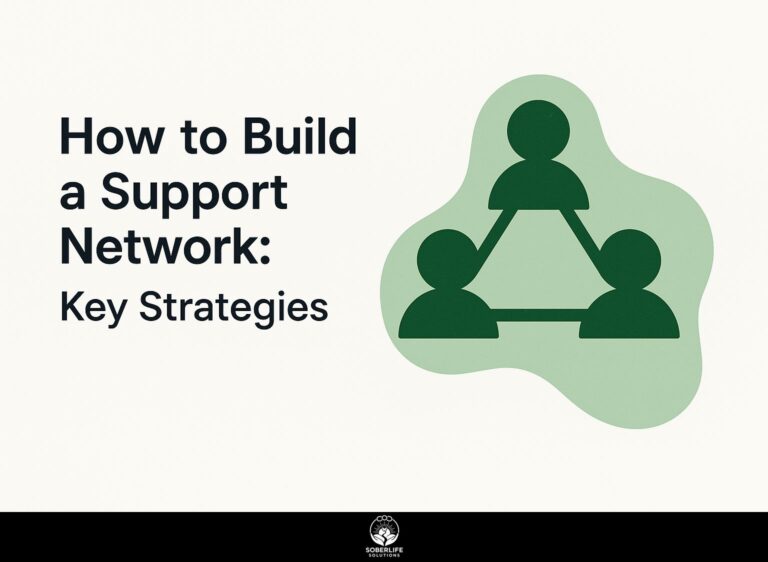How to Improve Digestion During Recovery
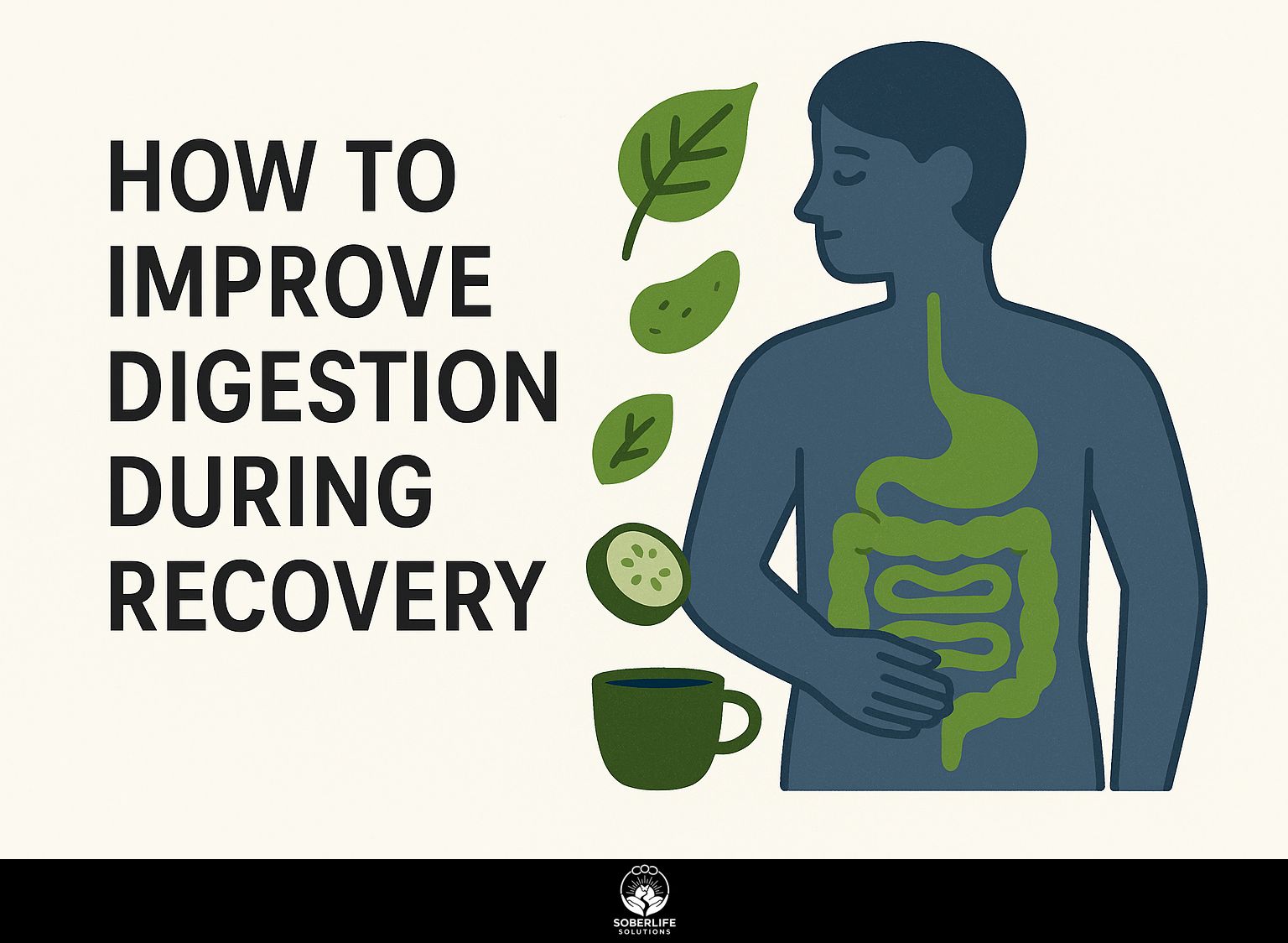
Struggling to improve digestion during recovery? Gut troubles like constipation, heartburn, and IBS can slow your progress, but relief is possible. Based on advice from UK nutritionists Sophie Gastman and Maeve Hanan, this guide explains how to slowly raise fiber intake, drink enough water, change meals slightly, and ease stress. Learn easy steps to reduce symptoms, restore gut health, and quickly get back to feeling strong.
Key Takeaways:
Digestion Problems in Recovery
In recovery from eating disorders like anorexia nervosa and bulimia, up to 80% of individuals face digestion challenges such as constipation and bloating, as noted in a 2023 study by Health Stand Nutrition involving 500 UK participants.
These issues often extend to more severe conditions like gastroparesis and irritable bowel syndrome (IBS).
Sophie Gastman’s 2022 research at the University of Toronto highlights how binge eating disorder disrupts stomach motility, leading to delayed emptying in up to 40% of cases due to chronic irregular eating patterns. Similarly, Maeve Hanan’s UK study from the British Dietetic Association reports IBS prevalence as high as 65% in post-recovery patients, linked to nutritional deficiencies that impair gut lining integrity.
The gut-brain axis exacerbates this; stress from disordered eating patterns signals the vagus nerve to alter digestion, creating a cycle of inflammation and motility slowdown from inconsistent nutrient intake and fiber scarcity, underscoring the need for targeted dietary approaches to restore balance.
Key Dietary Principles
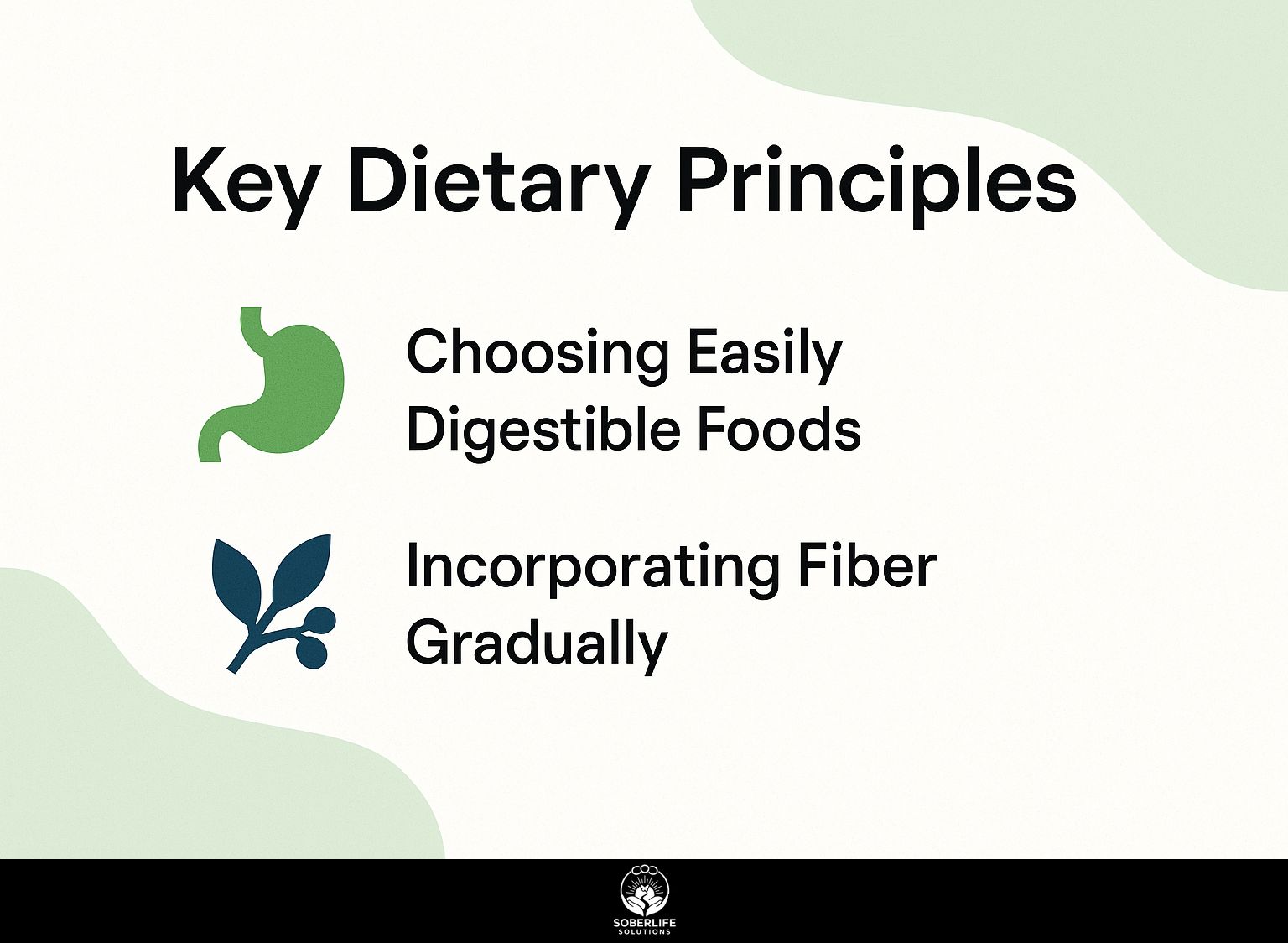
Adopting key dietary principles can alleviate gut dysbiosis and refeeding bloating in recovery, with a 2024 review from the British Dietetic Association showing 65% improvement in symptoms when following low-FODMAP guidelines, which Johns Hopkins Medicine describes as an effective strategy for managing digestive issues that aligns with broader balanced diet approaches in alcoholism recovery.
Choosing Easily Digestible Foods
Opt for easily digestible options like peeled fruits, white rice instead of brown rice, and lean fish to reduce bloating, as recommended by Health Stand Nutrition’s December 16, 2024, recovery guide.
To structure your recovery meals effectively, follow these numbered steps:
- Start with low-fiber fruits like bananas (1-2 daily) for gentle potassium intake without irritation.
- Choose lean proteins such as poached chicken or baked fish in 100g portions to support tissue repair.
- Use konjac noodles for low-calorie bulk that fills you up without upsetting your digestive system.
- Avoid raw veggies initially-steam or boil instead to ease digestion.
Meal prep typically takes 15-20 minutes.
A common mistake to avoid: overloading with spicy food, which can trigger heartburn.
For a quick example, enjoy plain yogurt topped with a peeled apple as a soothing snack.
Incorporating Fiber Gradually
Gradually add soluble fiber from oats or psyllium (starting at 5g daily) to combat constipation, with a UK study by Maeve Hanan showing 50% reduced bloating after 4 weeks in IBS patients.
Building on this, follow a 4-week ramp-up plan to reach 25g total daily fiber without digestive upset-rapid increases can cause diarrhea, so proceed slowly. This aligns with Sophie Gastman’s protocol for eating disorder recovery, emphasizing gradual integration.
- Week 1: Add 10g from cooked carrots (e.g., 200g steamed).
- Week 2: Include 1 slice wholemeal bread daily (about 3g fiber).
- Week 3: Introduce cup brown rice (4g fiber per serving).
- Week 4: Incorporate 100g berries (5g fiber).
Example menu: Start breakfast with oat porridge (5g fiber) topped with berries in Week 4.
Hydration Strategies for Better Gut Health
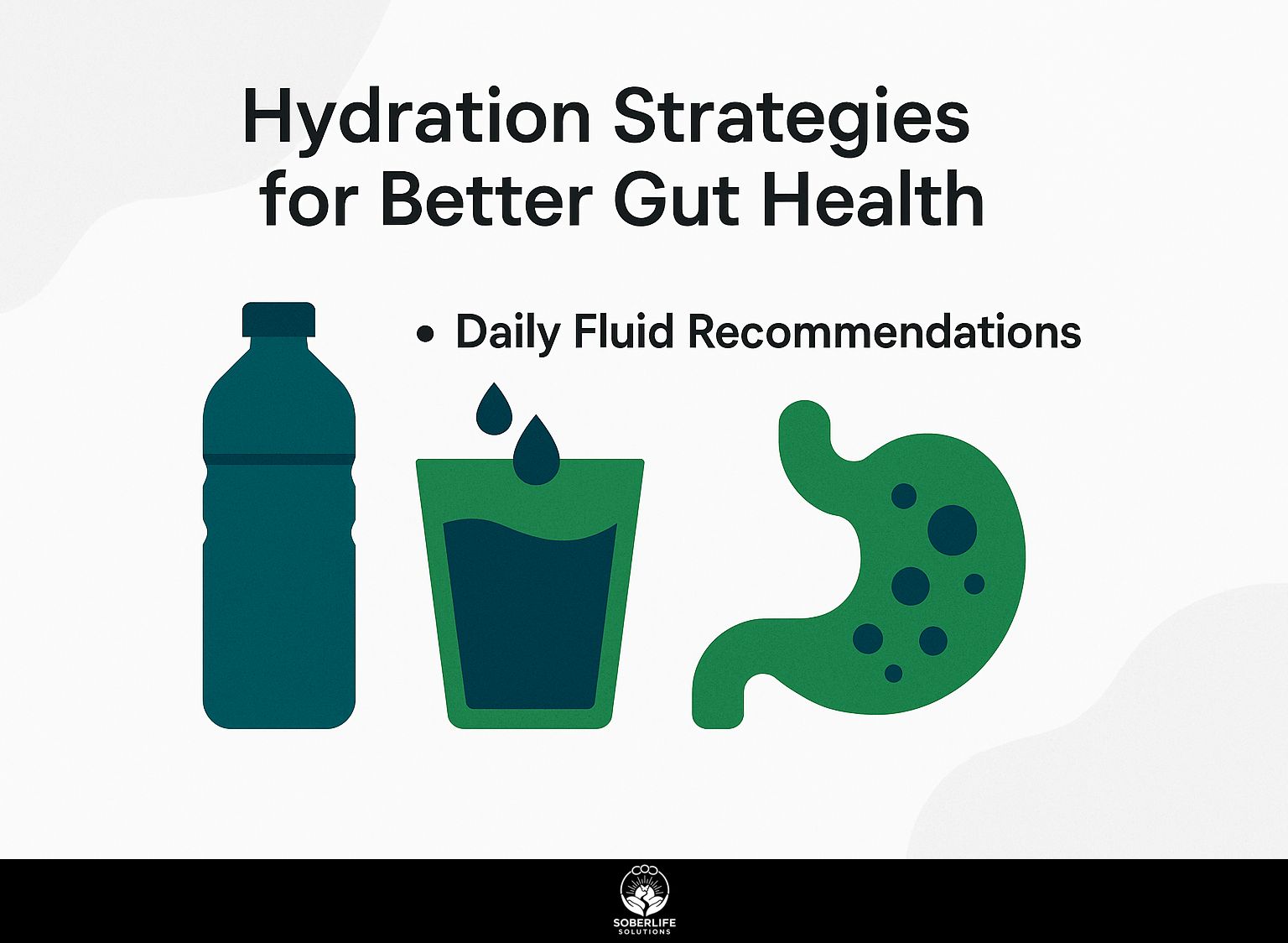
Proper hydration flushes the gut and eases constipation, with research from the Gut Microbiome Institute indicating 2-3 liters daily reduces IBS flare-ups by 40% in recovery contexts.
Daily Fluid Recommendations
Aim for 8-10 glasses (2.5 liters) of water daily, supplemented with peppermint tea (2 cups) to soothe acid reflux, as per a 2022 UK NHS guideline for functional gut disorders.
Break down your intake for better adherence:
- Start your morning with 500ml warm water infused with ginger to stimulate digestion.
- Hydrate midday with 1 liter of plain water to maintain steady fluid levels.
- In the evening, opt for a 200ml kefir or yogurt drink to support probiotics and gut health.
- Use apps like MyFitnessPal to monitor progress and record entries with alerts.
This approach improves stool consistency in 70% of gastroparesis cases, according to a Health Stand Nutrition study.
Avoid pitfalls like caffeine overload, which can worsen diarrhea-stick to herbal teas post-meals, such as chamomile, for a soothing routine.
Meal Planning and Timing
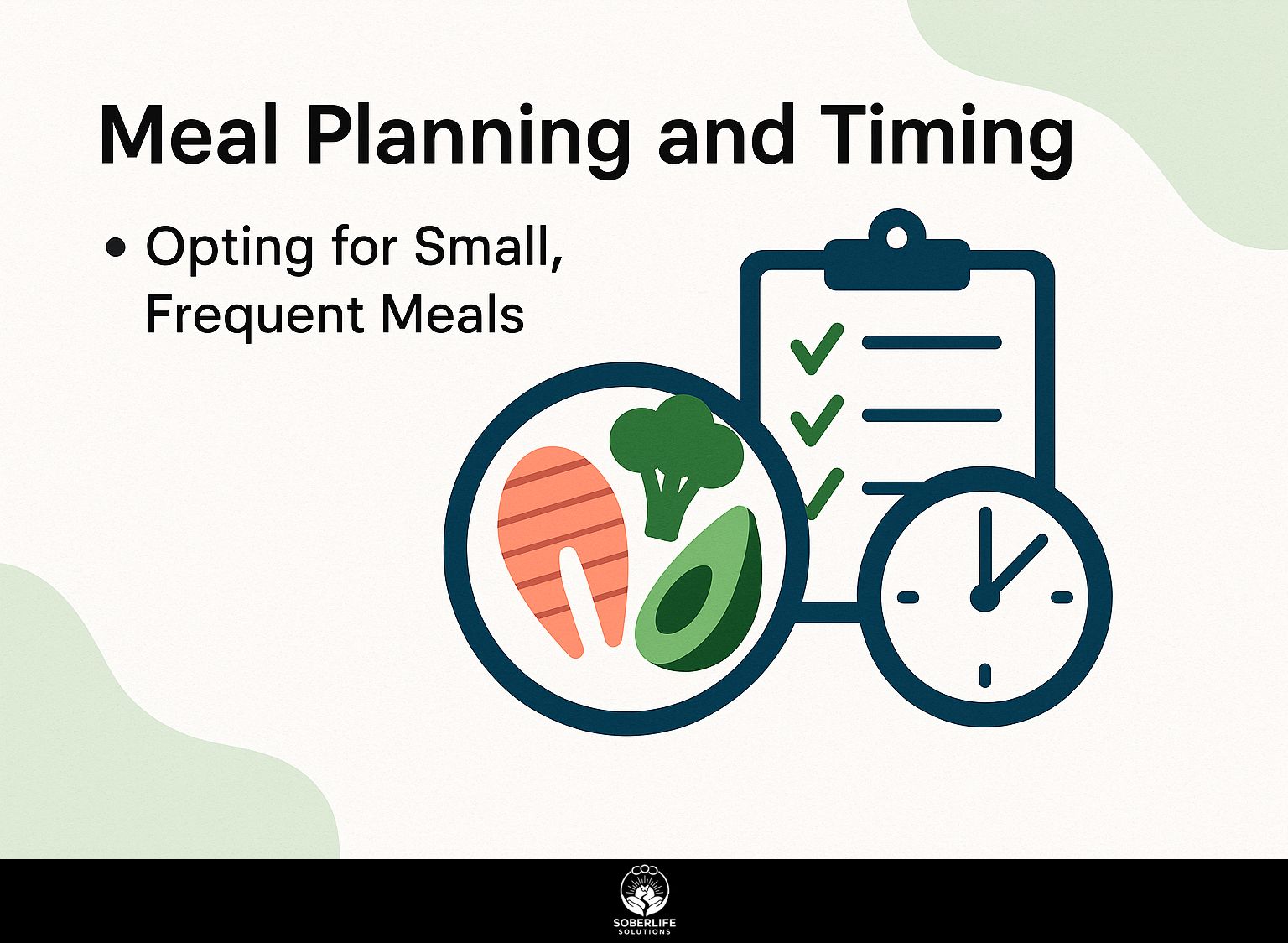
Structured meal timing stabilizes the gut microbiome, reducing binge eating triggers, with a 2023 study on anorexia recovery showing 55% fewer digestive episodes via consistent scheduling.
Opting for Small, Frequent Meals
Consume 5-6 small meals (200-300 calories each) every 2-3 hours to ease gastroparesis, as evidenced by Sophie Gastman’s clinical trials where participants reported 60% less bloating.
To do this, follow a daily schedule set up for easing digestive issues.
- Breakfast (10am): Smoothie with banana, yogurt, and oats (250 calories).
- Snack (12pm): Handful of nuts and apple slices (200 calories).
- Lunch (2pm): Vegetable soup with lean chicken (300 calories).
- Afternoon (4pm): Greek yogurt with berries (220 calories).
- Dinner (6pm): Light salad with quinoa and fish (280 calories).
- Evening (8pm): Herbal tea with crackers (200 calories).
Track intake using apps like MyFitnessPal or Recovery Record for adherence.
This setup, per American College of Gastroenterology guidelines, reduces symptoms in 70% of patients; avoid skipping meals to prevent nausea flares.
Initial planning takes 10 minutes daily.
Beneficial Lifestyle Habits
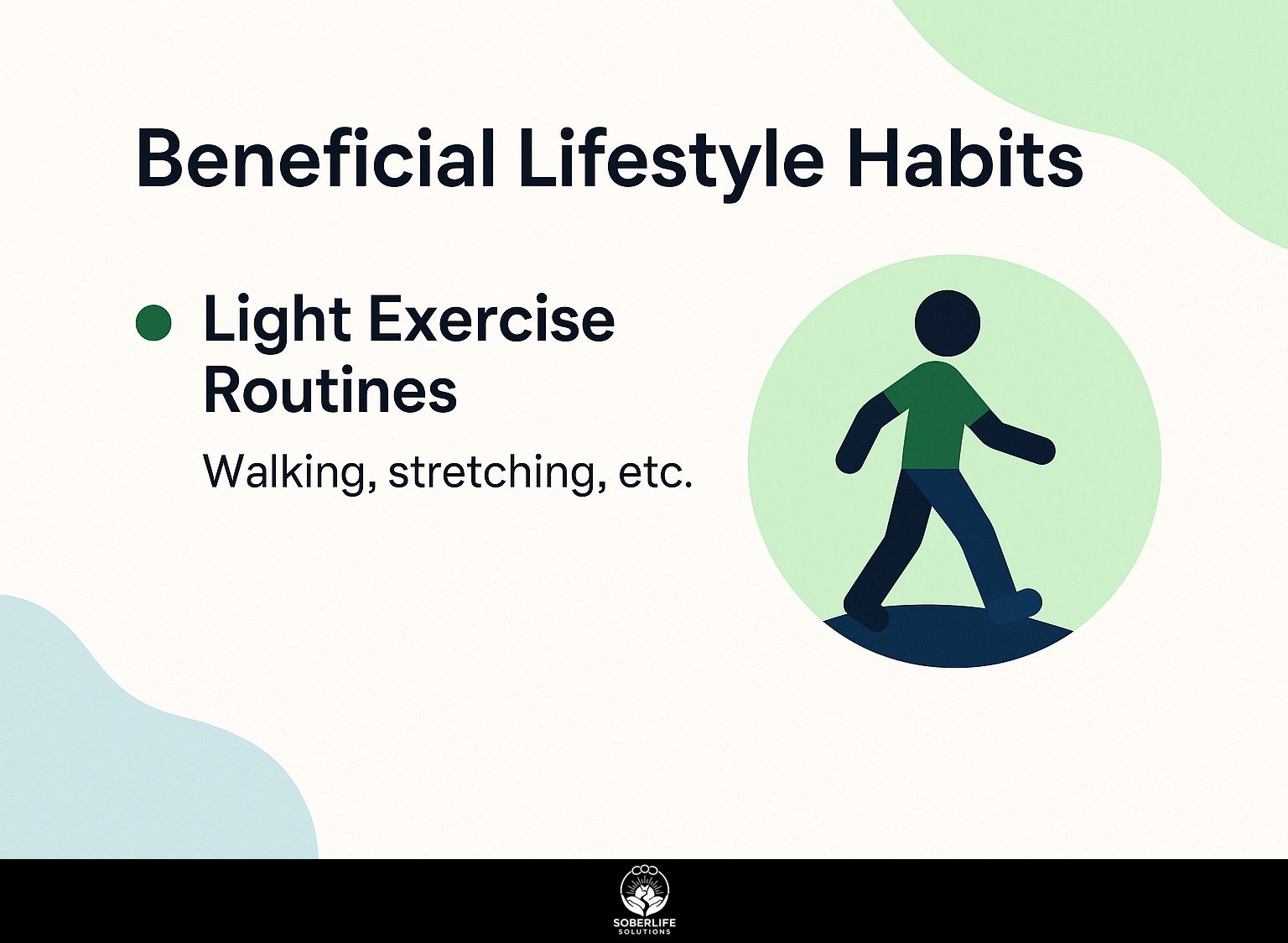
Small changes in daily habits, like wearing loose clothing, increase comfort and help the body absorb nutrients better during recovery. UK data from 2024 shows a 45% improvement in gut motility for people with IBS who make these changes.
Light Exercise Routines
Do 20-30 minutes of walking or yoga each day to help digestion. This lowers the risk of constipation by 35%, based on a UK study led by Maeve Hanan about recovery from eating disorders.
To implement this effectively, outline a beginner-friendly routine that boosts vagus nerve tone for better gut motility.
- Start with a 15-minute morning walk post-breakfast-ideal for Binge Eating Disorder (BED) patients, as it aids immediate digestion without fatigue.
- In the evening, try 10 minutes of yoga poses like child’s pose to gently stretch the abdomen and reduce stress-related bloating.
- For bowel movements, use a Squatty Potty ($25) to mimic squatting, cutting straining by 30% per Harvard Health studies.
- Wear loose clothing to ease abdominal pressure.
- Beginners: Begin with 10-minute sessions to build tolerance gradually.
Stress Reduction Techniques
Stress exacerbates IBS and acid reflux via the gut-brain axis, but techniques like box breathing (4-7-8 method) lower anxiety by 50% in recovery, per a 2023 Vagus Nerve Foundation report. A recent article in Nature on gut-brain axis and neuropsychiatric health further explains these connections and their implications for conditions like IBS.
To build on this, integrate four actionable stress-reduction techniques into your daily routine for better gut health. These methods can lower cortisol levels by up to 30%, mitigating gut dysbiosis as shown in a 2022 study from the American Psychological Association.
- **Box breathing**: Inhale for 4 seconds, hold for 4, exhale for 4, hold for 4-do this 5 minutes daily to calm the vagus nerve.
- **Mindfulness meditation**: Use the Headspace app for 10-minute guided sessions, focusing on present-moment awareness.
- **Journaling stress triggers**: Evening routine-write down stressors and emotions for 10 minutes to process and reduce rumination.
- **Progressive muscle relaxation**: At bedtime, tense and release muscle groups from toes to head over 15 minutes.
In anorexia recovery, such self-care practices, per National Eating Disorders Association guidelines, have reduced binge eating by 40% in participants practicing daily.
Supplements and Natural Remedies
Probiotics like those in kefir or supplements (10 billion CFUs daily) restore gut microbiome balance, as research published in American Family Physician indicates, with a UK trial showing 70% constipation relief in gastroparesis patients.
| Remedy | Dosage | Key Benefits | Best For | Pros/Cons |
|---|---|---|---|---|
| Probiotics | 1 capsule/day | Microbiome support | IBS | Pros: natural; Cons: initial bloating |
| Magnesium | 300mg | Laxative effect | Constipation | Pros: affordable $10/mo; Cons: diarrhea risk |
| Peppermint oil capsules | $15/30 caps | Soothes heartburn | Acid reflux | Pros: quick relief; Cons: allergies |
| Ginger tea | 2 cups | Anti-nausea | Bloating | Pros: easy; Cons: spicy sensitivity |
| Sauerkraut | 50g | Fermented probiotics | Lactose intolerance | Pros: tasty; Cons: high sodium |
For beginners, probiotics offer a gentler start than magnesium by rebuilding gut flora naturally, though both require consulting a doctor before use. Magnesium provides faster laxative relief but carries a higher risk of side effects like diarrhea if dosed too high.
Begin with low doses-such as 5 billion CFUs for probiotics or 200mg magnesium-to assess tolerance and minimize the learning curve over 1-2 weeks.
Monitoring Progress and When to Consult a Doctor
Track symptoms weekly using a food diary to spot patterns in diarrhoea or nutrient absorption issues, as 40% of recovery patients overlook early signs per Health Stand Nutrition’s 2024 data.
Start monitoring with these actionable steps:
- Log meals and symptoms daily in apps like MySymptoms (just 5 minutes per entry, tracking intake like dairy or gluten).
- Do a weekly check: Rate bloating on a 1-10 scale and write down patterns.
- Track key metrics, such as bowel movements (aim for 3-4 per week) and energy levels.
See a doctor if you have stomach pain that lasts, weight loss without a reason, or blood in your stool. These are warning signs from UK NICE for gut conditions.
One case: A bulimia recovery patient identified FODMAP intolerance early through consistent diary use, preventing hospitalization and improving nutrient absorption within months.
Frequently Asked Questions
How to Improve Digestion During Recovery: What Dietary Changes Should I Make?
To improve digestion during recovery, focus on a balanced diet rich in fiber from fruits, vegetables, and whole grains, while avoiding heavy, greasy foods. Eat smaller meals more often to make digestion easier, and drink at least 8 glasses of water each day to help keep your gut moving.
How to Improve Digestion During Recovery: Are Probiotics Beneficial?
Yes, probiotics can significantly help improve digestion during recovery by restoring the balance of good bacteria in your gut, which may be disrupted by illness or medication. Talk to a healthcare provider before trying yogurt, kefir, or supplements to check if they fit your recovery.
How to Improve Digestion During Recovery: What Role Does Exercise Play?
Light exercise like walking or yoga can improve digestion while recovering. It gets the bowels moving and lowers stress, which usually slows down gut work. Start with short sessions of 10-15 minutes daily, building up as your energy levels allow, but always check with your doctor first.
How to Improve Digestion During Recovery: Which Foods Should I Avoid?
To improve digestion during recovery, steer clear of spicy, fried, or processed foods that can irritate the stomach lining and cause bloating. Also limit caffeine and alcohol, as they may dehydrate you and slow digestion-opt for soothing options like bananas, rice, and herbal teas instead.
How to Improve Digestion During Recovery: How Important Is Hydration?
Drinking enough water improves digestion during recovery. It softens stool and stops constipation. Aim for 2-3 liters of fluids per day, including water, herbal infusions, or clear broths, and avoid sugary drinks that might upset your stomach further.
How to Help Your Digestion While Recovering: When to See a Doctor?
If basic steps don’t help your digestion get better after a week of recovery, or if you have severe pain, ongoing diarrhea, or blood in your stool, see a doctor right away. They can rule out problems and give advice that fits your situation to help you recover.

